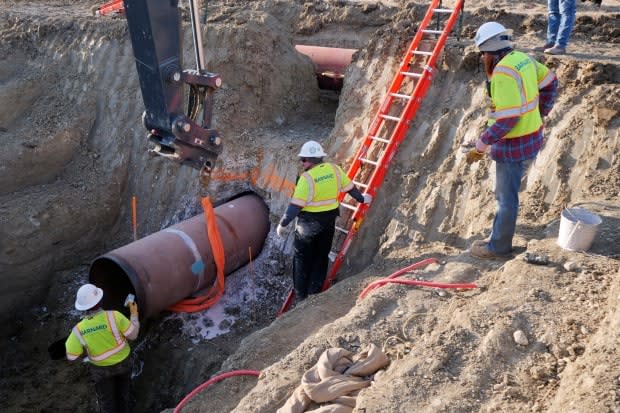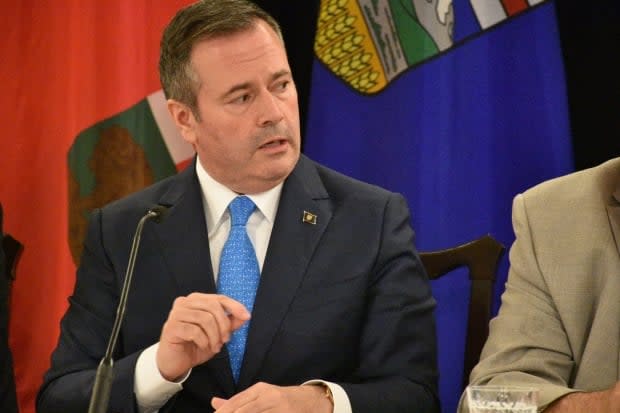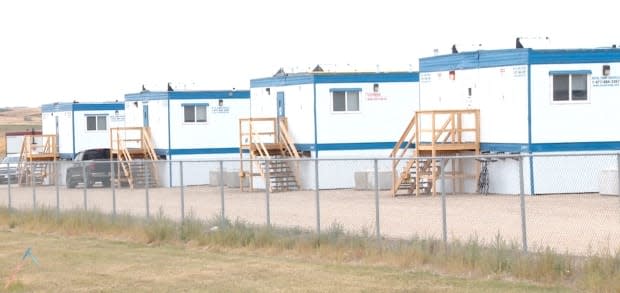Alberta braces for Biden's Keystone XL decision

Last week, the Alberta government was still hoping to convince the new U.S. administration of the benefits of building the Keystone XL pipeline — jobs, energy security and post-pandemic stimulus among them.
Whether or not they got to make their pitch, it may not matter much now. President-elect Joe Biden, whose inauguration is Wednesday, appears poised to cancel a key permit for the project, just as he promised voters he would months ago.
And if that's indeed the case, it will be a blow for many in the province — rattling the United Conservative Party government, pipeline workers and taxpayers, who made a $1.5-billion investment in the project, plus loan guarantees.
"I don't think it's good news for anybody in Canada," said Duane Bratt, a political scientist at Mount Royal University in Calgary.
The full impact a Biden cancellation would have on the oil sector is not entirely clear yet, especially as work continues on two other major pipeline projects: Enbridge's Line 3 and the Trans Mountain pipeline expansion.

Some analysts have suggested that the completion of two of the three projects would provide the pipeline capacity the oil sector needs, helping move more crude to market and fetching better prices.
But another U.S. rebuff of Keystone XL will still sting for many Albertans, with Premier Jason Kenney among them.
The premier placed a big bet on the TC Energy project last spring, with the province's sizeable financial support helping kick-start construction of the pipeline north of the border.
Even when Biden's campaign said he'd pull a critical permit if he became president, Kenney remained committed. He continued to speak confidently of the project's future after the U.S. election in November.
If the project is thwarted again — as it was under the presidency of Barack Obama — there will be big questions for Kenney and his government's investment.

"This is a huge blow to Kenney," Bratt said. "You're talking $1.5 billion plus the various loan guarantees. We don't know without seeing the contract what the full extent of the losses will be."
Kenney believes Alberta has a "solid legal basis" under Canada's trade agreement with the U.S. to seek damages if the project is indeed killed.
"We have retained legal counsel, both here in Canada and the United States, to advise through the entire process, including our potential legal standing to seek compensation should there be this kind of retroactive veto," the premier told reporters at a news conference Monday morning in Edmonton.
'Critical moments'
NDP Leader Rachel Notley, who has been calling for greater transparency around the deal for months, reiterated her concerns Sunday night.
"With KXL facing critical moments in the coming days, Albertans deserve to know exactly how much of their money is at stake," she said in a statement Sunday.
And that investment could loom large when the province sets to work on its next budget.
"The one big thing to keep in mind is that regardless of the need for the pipeline for future oil shipments, the Alberta government has some pretty significant financial stakes in the project," said Trevor Tombe, an associate professor of economics at the University of Calgary.
Longer term, Tombe said the economic impact of such a cancellation would have on Alberta is difficult to assess.

"The cost of losing Keystone depends on the amount of oil produced in Alberta in the future," he said. "And that depends on a lot of things that are still today not entirely certain."
Tombe said if the world takes strong action on climate change, then losing Keystone XL doesn't represent a significant cost to Alberta because it's not a project that would be needed in such a future.
"But if the world doesn't take strong action on climate, then oil production here would grow enough to need that pipeline," Tombe said.
"In that case, it's significantly valuable to have that pipeline — but then that would be a state of the world where we completely failed to achieve our climate objectives."
There may be hundreds of pipeline workers wondering what the future holds as well.
TC Energy put roughly 1,000 people to work near the community of Oyen a few months ago to work on the northern leg of the 1,947-kilometre, Alberta-to-Nebraska pipeline.
Speaking to CBC News last fall, workers weren't sure what the future would look like after the U.S. election if Donald Trump lost.
An analysis by RBC Capital Markets on Sunday said that if Biden rescinds the presidential permit, the market would likely view a decision to walk away from the project as the best outcome for the company's stock.
"Particularly as we think the stock currently reflects little, if any, value" for the project, RBC said.
TC Energy's stock was down slightly — little more than three per cent — in early trading in Toronto on Monday, trading at well above $54 per share.
Of course, stopping Keystone XL would be a big victory for environmentalists, including those in Alberta, who've been warning about the project's impact on climate change for years and urged Biden to act.
It would be stunning if any of those groups were swayed by a TC Energy release Sunday night that said the company will achieve net-zero emissions across the project operations "when it is placed into service in 2023."
It also said operations will be fully powered by renewable energy sources no later than 2030. The promises made news in the Wall Street Journal, but RBC analysts said they'd be "surprised" if it saved the project.

